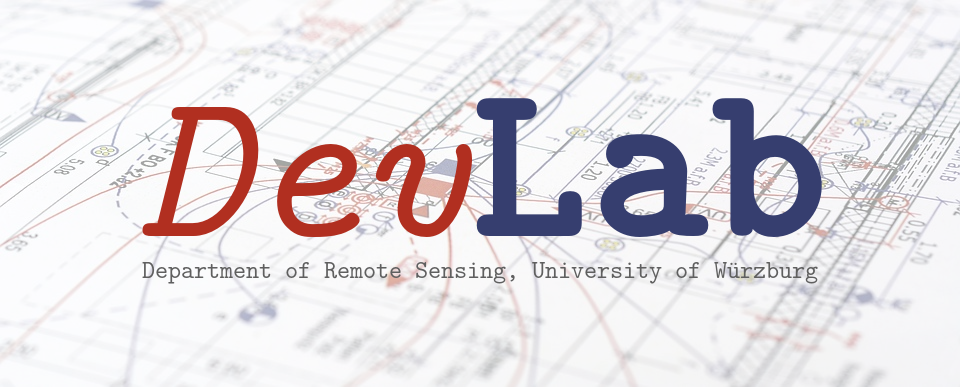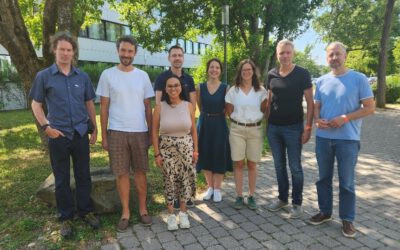At the Department of Remote Sensing, we regularly organize workshops within the DevLab workshop series, which is meant to introduce colleagues to the code and software development done at the Department. This includes all levels of technical developments, ranging from (i) the pure implementation of scientific methods as code (e.g. to show colleagues, how certain problems were tackled) over (ii) the development of software tools (e.g. R packages, Python libraries, QGIS plugins, web applications etc.) to (iii) the implementation of functional tool chains and working chains (e.g. data infrastructures, product processors etc.).
In our first DevLab meeting of 2020 in January, Steven Hill will hold a workshop on Earth Observation data cubes, including an introduction into the Open Data Cube infrastructure, the PhenoCube user interface and the development of PhenoCube applications using Jupyter Notebooks.
About the upcoming workshop: The introduction of ever higher resolution remote sensing data has led to an explosive increase in high-quality earth observation data in recent years. Remote sensing earth observation data have already exceeded the petabyte scale and are increasingly freely and openly available from different databases. However, the abundance of information available in EO data is far from exhausted. The extraction and analysis of information from data sets represents an enormous technological challenge due to the quantity and diversity of the data. The technological nexus of constantly increasing spatial, temporal, spectral and radiometric resolutions through newly developed sensors and platforms creates a flood of remote sensing data and inevitably leads to the problem of ”big data”. EO Data Cubes (DC) are a new paradigm aiming to realize the full potential of EO data by lowering the barriers caused by these Big data challenges and providing access to large spatial-temporal data in an analysis ready form. This workshop is intended to introduce participants to the Open Data Cube infrastructure and to give a brief introduction to the different applications.








